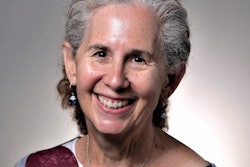
The weather forecasters are predicting a "snowmageddon" this week in parts of the U.S. In theory, you have a full day of restorative and hygiene patients scheduled. What to do?
We all understand the need to complete the projected treatment for the day. After all, we need to pay bills and keep the practice managers happy. But what happens when it's just too dangerous to get to the office? There are several thoughts on working in inclement weather. Some may think 100° is inclement, but consider winters where the snow is plentiful and the wind chills may be below -30° for sustained periods. In times like this, you have to think about the safety of both your team and your patients.
 Sheri B. Doniger, DDS.
Sheri B. Doniger, DDS.Dental offices should have two inclement weather policies for both patients and team members in their emergency plan protocols. One would be for a planned closing, and one would be for an emergency closing. Who makes the call to close the office? Usually, the practice owner will do this. How many are involved with that decision? It depends on the office team composition and the office mission.
If a practitioner decides it will be unsafe for the team and patients to come to the office, patients may be canceled the day before or on the actual scheduled day. Many offices have a text or other messaging protocol to alert the team as to an emergency closing. A person should be designated to contact and reschedule the patients. With mobile access to schedules, some practices may do this remotely. For those who are not as connected, a copy of the daily schedule with contact information phone calls should be provided to the person rescheduling the patients. Usually, if there is a major snowstorm with unsafe driving conditions, patients will call us before we are able to call them.
One other component of the inclement weather policy should include patient cancellations. What is the penalty to cancel an appointment if a snowstorm is predicted? What if patients cancel after they have confirmed? Are there any considerations for these cancellations, especially with a major snowstorm predicted? Some offices have policies about cancellations and rescheduling. Most are very flexible. We will allow for cancellations less than 48 hours prior to the scheduled appointment time. In one instance, a power failure occurred in addition to the storm. The patient wasn't able to get out of her garage so this was definitely not a great day for her.
In our practice, I am the owner and would make the decision. My team members are usually grateful if they do not have to deal with erratic drivers and unpredictable weather conditions. We have canceled when the snow was heavy and when the wind chills were at an Arctic level. It all depends -- but it is all about their safety.
On the other hand, if the practice owner decides to keep the office open and team members decide not to chance driving, the office would have to decide how to handle their salary for the day. Most would not pay them. Some practices use the schools as a barometer. They reason that, if the schools are open, the team should be able to drive in. If the schools are closed and the office is closed, they are given a day with pay. The policies are all over the board. No one should feel unsafe driving to work. Many offices will consolidate the patients and treat those who show up. If the weather is truly horrible, many may not venture out. But, if the weather is truly so bad, even with consolidating the patients, there still may be cancellations.
The ability to navigate the roads and beyond is paramount in our practice. When the weather forecasters are predicting double-digit inches of snow, falling during the night and continuing into the next day, we definitely evaluate our options. Patients are anxious enough coming to visit us, without a layer of traffic unpredictability due to weather conditions. Our first consideration will always be patients of limited mobility. A patient of ours has Parkinson's disease. He has difficulty navigating dry pavement, let alone a parking lot with snow and ice. We always cancel him first. Patients in wheelchairs also will be offered an option to reschedule, even if the entire day is not canceled.
Some of us are not blessed with a garage. For those who have a garage, they still have to shovel or wait for their plow service to clear their driveway to access the street. Many of us start early in the morning, before the city or village trucks have hit the side streets, let alone the main thoroughfares. Additionally, some team members and patients commute from a distance via public transportation. We consider all these factors when we decide to cancel the day. These are potential considerations for both the team and patients. In many offices, it may be difficult to reschedule, or patients have an emergency and they may want to venture out to ensure treatment. It is still up to the practice owner to determine the safety of both the patients and team with regard to the weather conditions.
Besides the loss of office production, another consideration in canceling a patient day is team compensation. Again, this should be spelled out in your policy and procedure manual. If the practice owner decides the roads are manageable and the team should be at the office, a determination of who will be paid if they do not show up should be in writing. On the other hand, if a practice owner decides to close the office, a written policy should state if a team member will receive compensation for the missed day. As always, it is best to have these office policies clearly in place. If you do not have emergency closings in your office manual, it may be a good topic to discuss at your next team huddle.
Considering keeping the office open? Some practices send rideshare cars to their patients' homes so they will be able to keep their appointments without driving. This has many potential liability concerns. Who is liable if an accident occurs when your patient is in a taxi or Uber on the way to your office? Yes, they opted to go into the car but, in these litigious times, do you really want to be responsible if anything happens on the way to or from your office? Now, in theory, anything can happen when a patient (or team member) drives themselves to your practice. If they fall on the way into your building, you are liable.
When to make that call when the weather forecasters are wrong more than they are right? On occasion, we have canceled the day when the snow was not as bad as predicted. On other occasions, we have just kept the schedule intact, especially on a Saturday. Patients tend to get in on Saturday, especially for preventive visits. And, let's face it, the forecasters are frequently wrong.
One of the things I have learned after three decades in practice is that you can't predict the weather or your patient's willingness to come in during a storm. You have to make a decision, based on your judgment and whatever weather data are available. If you decide to close the practice, consider spending a bonus day with your kids, spouse, or significant other; enjoy the day with a mug of hot cocoa and a good book; or binge watch one of the shows you promised yourself you would see.
The patients will come back, and they will appreciate your concern for their personal safety in addition to their dental health. I have never heard a patient say, "Oh, no, I really want to come into my dental appointment for that root canal." Ever.
Sheri B. Doniger, DDS, practices clinical dentistry in Lincolnwood, IL. Her book, Practical Practice Solutions in Dentistry, is available on amazon.com. You can reach her at [email protected].
The comments and observations expressed herein do not necessarily reflect the opinions of DrBicuspid.com, nor should they be construed as an endorsement or admonishment of any particular idea, vendor, or organization.


















